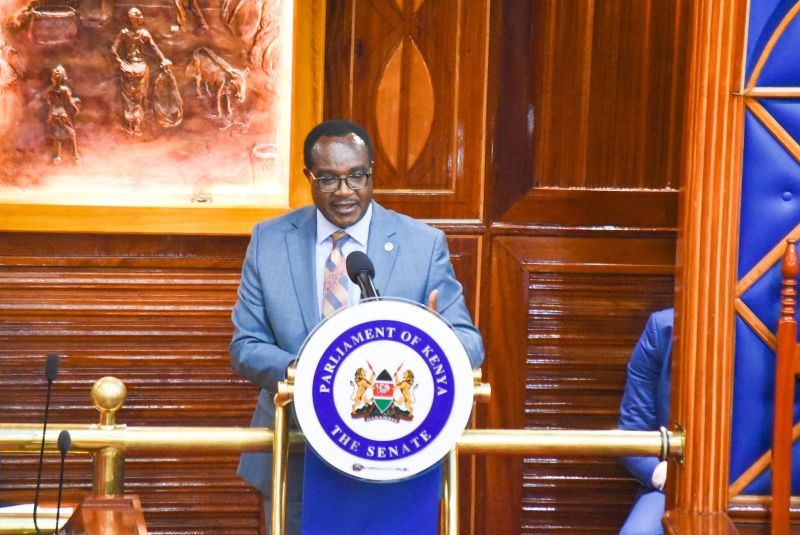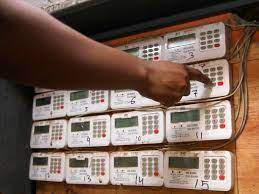Sh7.9 billion at centre of prolonged gov't–lecturers standoff as students warn of joining strike

As the financial dispute remains unresolved, the strike has amplified existing challenges in public universities, including crumbling infrastructure and growing frustration among students and lecturers. The outcome of the upcoming conciliation talks will determine whether learning resumes soon or the crisis deepens further.
A fierce disagreement over billions of shillings in unpaid dues has pushed public universities deeper into crisis, with a nationwide lecturers’ strike stretching into its third week and no resolution in sight.
Conflicting figures between the government and lecturers have turned the 2017–2021 collective bargaining agreement (CBA) into the heart of a standoff that has stalled learning and triggered student unrest.
More To Read
- KEMRI-JKUAT collaboration secures court ruling to protect senior scientists from early retirement
- Over 30,000 teachers set for senior school curriculum training ahead of 2026 transition
- 2025 KCSE concludes smoothly as government reports sharp decline in exam cheating cases
- Education Ministry pledges early capitation release for smooth start to new term
- Ruto announces recruitment of 24,000 more teachers by January to ease national shortage
- Private universities demand Sh58.8 billion in unpaid tuition fees from government
Education Cabinet Secretary Julius Ogamba on Wednesday told senators that the government only owes Sh624 million, contradicting lecturers’ insistence that Sh7.9 billion remains unsettled.
“Under that CBA, they argue that there was an amount of Sh7.9 billion that was to be paid. However, the Salaries and Remuneration Commission (SRC) informs us that Sh7.2 billion has already been settled, leaving a balance of Sh624 million,” Ogamba said during a Senate plenary session.
The lecturers’ union, however, maintains that the state has failed to honour both a court judgement and an advisory from the Attorney General dated April 10, 2025, directing the ministry to clear the full Sh7.9 billion.
Universities Academic Staff Union (UASU) Secretary General Constantine Wesonga last week urged the government to follow through on the directive, warning that the industrial action would continue until the amount is fully paid.
The strike began after UASU issued a seven-day notice at the start of the academic year, accusing the government of neglecting its obligations under the CBA. Lecturers are demanding the settlement of the entire Sh7.9 billion balance and the initiation of negotiations for a new agreement covering the period 2025–2029.
The ministry, however, has maintained its position that the majority of the dues have already been cleared.
“There is a question of how much is outstanding; what the unions are asking for, and what the government is saying it owes them,” Ogamba said.
He added that more than 90 per cent of the arrears have been paid, with Sh2.73 billion already released and a similar amount scheduled for disbursement in June next year to complete implementation of the 2021–2025 CBA.
To address the impasse, the Ministry of Labour and Social Protection appointed Richard Litaba as a conciliator to lead negotiations between the two parties. They are expected to meet at the Employment and Labour Relations Court on Monday for updates on the reconciliation process.
“The discussion and negotiations have been going on to see the real point of what the issue is. But this country being what it is, the facts are crowded in the noise,” Ogamba said.
“The real issue is the 2017-21 CBA, in which verification of how much money is due for us to be able to move to the next stage of how it’s going to be settled is what is pending.”
The prolonged industrial action has disrupted academic programmes nationwide, with thousands of students unable to continue their studies. Some have issued warnings that they will join the strike if the dispute is not resolved quickly, raising fears of a wider crisis in the education sector.
Senators put Ogamba under pressure to explain the state of affairs in universities, pointing to both the lecturers’ strike and widespread infrastructure challenges.
Nandi Senator Samson Cherargei sought updates on stalled projects and ongoing strikes, while Nairobi Senator Edwin Sifuna questioned the government’s respect for legally binding agreements.
“When will this government start respecting the proceeds of legal processes such as CBAs? Can the CS tell us why lecturers are on the streets for three weeks? And the students have told us that if the matter is not resolved today, they will join the strike. What is going on?” Sifuna asked.
Infrastructural problems
Ogamba acknowledged that universities are also grappling with serious infrastructural problems, revealing that at least Sh9 billion is needed to complete stalled projects.
“We have serious deficiencies in infrastructure funding, and many lecture halls and other projects remain incomplete,” he said.
Senators also raised separate concerns over the management of Junior Secondary Schools and teacher deployment. Murang’a Senator Joe Nyutu questioned why some Junior Secondary School (JSS) teachers were being assigned to subjects outside their training.
“Why are JSS teachers being assigned subjects outside their areas of specialisation, considering the impact this has on instructional quality, content accuracy, and learners’ preparedness for senior secondary pathways?” Nyutu asked.
Ogamba defended the Teachers Service Commission, stating that clear structures are in place to guide teacher placement. He added that staffing levels in primary schools have stabilised following a reduction in the number of classes.
“Due to the reduction in the number of classes in primary schools, the staffing position in the primary section is optimal, and there are no cases of teachers in junior school being compelled to teach in the primary section,” he said.
As the financial dispute remains unresolved, the strike has amplified existing challenges in public universities, including crumbling infrastructure and growing frustration among students and lecturers. The outcome of the upcoming conciliation talks will determine whether learning resumes soon or the crisis deepens further.
Top Stories Today












































